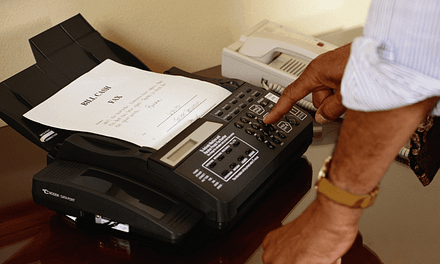In today’s fast-paced and interconnected business landscape, streamlined and efficient transaction processes are paramount. Whether you’re a small business owner, a financial institution, or a multinational corporation, the way you handle transactions can significantly impact your success. To meet the demands of the digital age and stay competitive, organizations are turning to innovative digital solutions that simplify transaction processes. This article explores seven top digital solutions that can revolutionize transactions, making them faster, more secure, and more convenient.
Payment Gateways
Payment gateways are intermediaries between businesses and financial institutions, facilitating secure online transactions. These encrypt sensitive payment information, ensuring the security of customer data during online purchases. Payment gateways support various payment methods, including credit cards, debit cards, digital wallets, and bank transfers, making it convenient for customers to complete transactions. They can seamlessly integrate into e-commerce platforms and websites, allowing businesses to accept online payments effortlessly.
Payment facilitators or merchant service providers (MSPs) often play a critical role in the implementation and management of payment gateways. These entities act as intermediaries that connect businesses with the financial infrastructure necessary to process payments securely and efficiently. A complete guide to payment facilitation, including its benefits, processes, and considerations, would be invaluable for businesses looking to optimize their payment processing. By embracing payment facilitation and the advanced capabilities of payment gateways, companies can simplify transaction processes, enhance customer satisfaction, boost revenue, and stay competitive in the ever-evolving digital landscape.
Mobile Payment Solutions
The rise of smartphones has ushered in a new era of digital payments. Mobile payment solutions simplify transactions by allowing customers to make payments using their mobile devices. Mobile wallets like Apple Pay, Google Pay, and Samsung Pay enable users to store credit card information securely on their smartphones. These wallets streamline in-store and online transactions, eliminating the need to carry physical cards. P2P payment apps like Venmo and PayPal make it easy for individuals to send money to friends and family. These apps simplify splitting bills, paying rent, and reimbursing each other.
Contactless payment methods, which use near-field communication (NFC) technology, allow users to make payments by simply tapping their mobile devices or cards at point-of-sale terminals. This speeds up the checkout process and reduces physical contact. This seamless, contactless payment approach aligns with the growing demand for safe, convenient, and efficient transaction methods in today’s fast-paced digital society.
Electronic Invoicing (e-Invoicing)
Managing invoices and payments can be time-consuming and error-prone for businesses. Electronic invoicing, or e-invoicing, automates the invoicing and payment processes. E-invoicing replaces traditional paper invoices with digital ones, reducing the need for manual data entry and paper-based documentation. This not only saves time but also helps the environment.
E-invoicing systems can automate the creation, delivery, and processing of invoices. This reduces errors, ensuring that invoices are sent and paid on time. Businesses can significantly reduce their invoicing costs by eliminating paper, postage, and manual processing. This is beneficial for small and medium-sized enterprises (SMEs). Adopting e-invoicing streamlines financial operations and aligns with sustainability efforts by reducing paper waste as well as environmental impact.
Digital Identity Verification
Verifying the identity of individuals or entities involved in a transaction is essential for security and compliance. Digital identity verification solutions simplify this process. Biometric authentication methods like fingerprint and facial recognition enhance security by ensuring that only authorized individuals can initiate transactions. Digital identity verification tools help businesses comply with KYC regulations by verifying customers’ identities and ensuring they meet compliance standards. By automating identity verification, companies can reduce the friction in the onboarding and transaction processes, improving user experiences. These advancements in digital identity verification bolster security and promote trust in online transactions, fostering a more secure and efficient digital marketplace.
Artificial Intelligence (AI) and Machine Learning
AI and machine learning technologies revolutionize transaction processes by providing advanced analytics and automation capabilities. AI-powered fraud detection systems analyze real-time transaction data to identify suspicious activities. This enhances security, minimizing the risk of fraudulent transactions.
Machine learning algorithms can predict transaction trends and customer behavior, helping businesses optimize pricing, inventory management, and marketing strategies. AI-driven chatbots and virtual assistants handle customer inquiries, process orders, and facilitate transactions without human intervention, providing 24/7 support. Integrating AI and machine learning into transaction processes empowers businesses to enhance efficiency and deliver personalized and responsive customer experiences, ultimately driving growth and competitiveness.
Blockchain Technology
Blockchain technology gained widespread attention for its potential to transform transaction processes across various industries. At its core, blockchain is a decentralized ledger, recording transactions across a network of computers. Blockchain ensures transparency by providing a tamper-proof record of all trades. This transparency builds trust among the parties involved, eliminating intermediaries like banks or payment processors.
Smart contracts, which are self-executing contracts with the terms of the agreement directly written into code, automate transaction processes. They trigger actions when predefined conditions are met, reducing the risk of disputes and errors. Blockchain simplifies cross-border transactions by removing the complexities of currency conversion and reducing the time required for settlements. This can be particularly beneficial for international trade.
Supply Chain Management Platforms
Streamlining transaction processes is crucial in supply chain management, where numerous transactions occur between suppliers, manufacturers, and retailers. Supply chain management platforms provide end-to-end visibility into the movement of goods and transactions, helping businesses make informed decisions and optimize logistics. These platforms automate procurement processes, enabling firms to place orders, track shipments, and manage inventory more efficiently. By digitizing transaction processes within the supply chain, businesses can reduce delays and errors, leading to faster and more reliable deliveries.
The digital solutions outlined in this article represent a transformative shift in how transactions are conducted across various industries. From blockchain technology’s transparency and trust to mobile payment solutions’ convenience, these innovations simplify transaction processes for businesses and consumers. Electronic invoicing, AI and machine learning, digital identity verification, payment gateways, and supply chain management platforms are streamlining operations, reducing costs, and enhancing security.
As technology advances, organizations embracing these digital solutions will gain a competitive edge through faster, more secure, and more convenient transaction experiences. Whether you’re a financial institution seeking to enhance fraud detection or a small business looking to streamline invoicing, exploring these digital solutions can pave the way for greater efficiency and success in the digital age.













